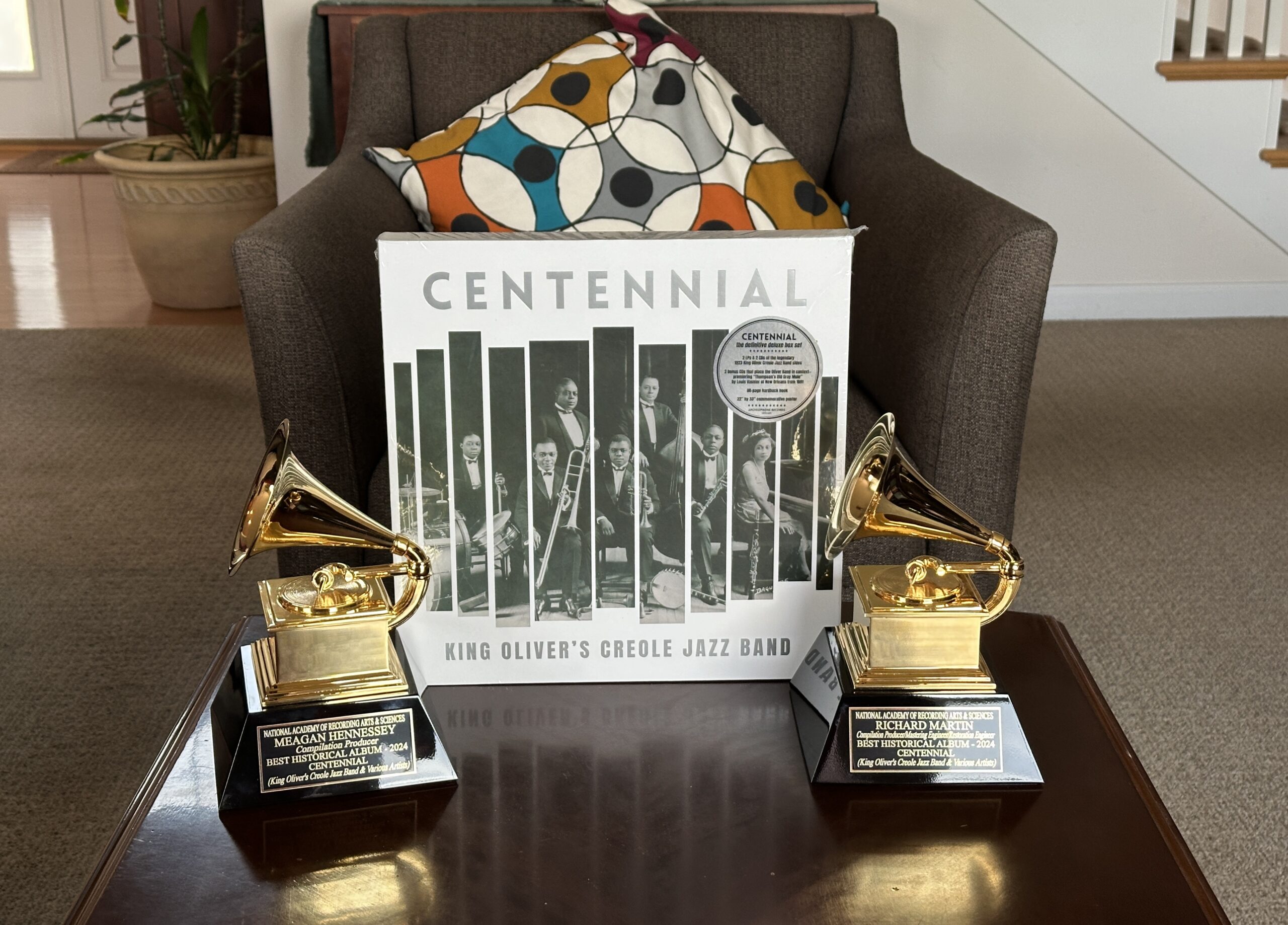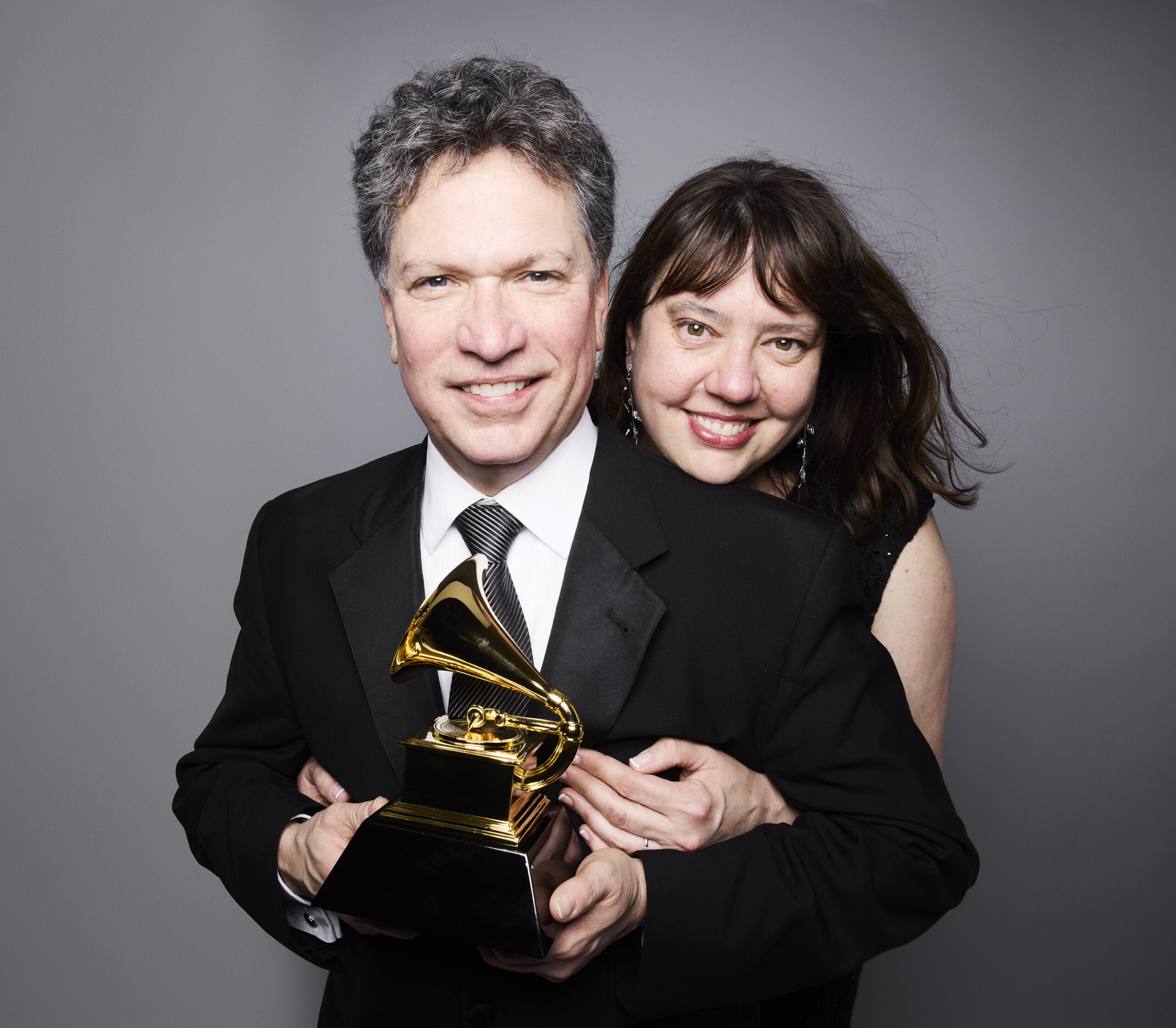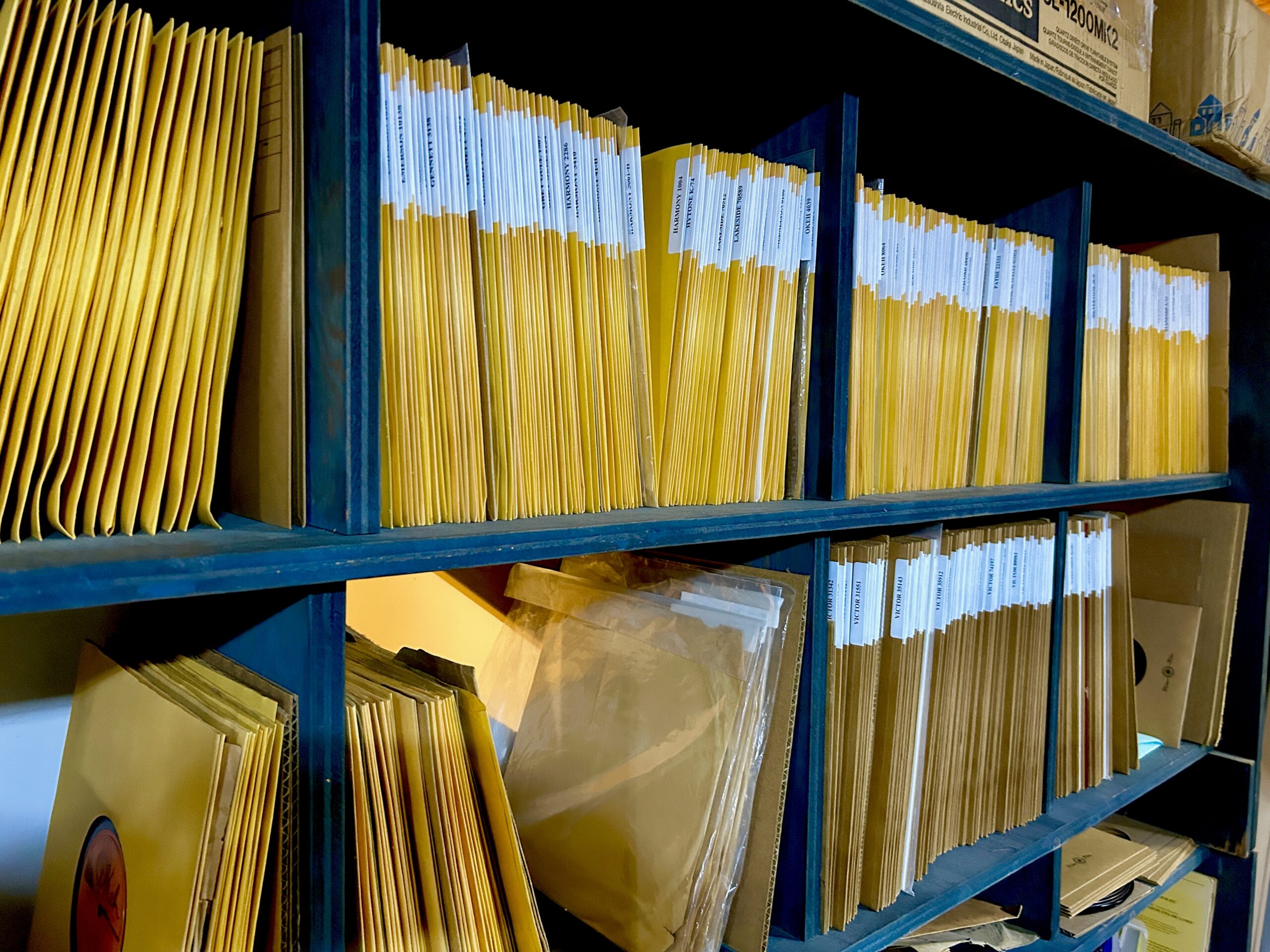In their suburban Champaign, Illinois, home—part studio, part archive, and part kitchen—Meagan Hennessey and Richard Martin craft homemade pizzas and sauces and preserve music recordings as part of their everyday routine.
It’s all part of their creative rhythm. As the duo behind Archeophone Records, they approach every project like a recipe.
Gathering rare recordings from over 25 years of scouring estate sales, record shops, and flea markets, folding in deep research and historical context, they finish each reissue with exquisite design.

Their latest release, Centennial: King Oliver’s Creole Jazz Band, won the 2024 Grammy for Best Historical Album and Best Album Notes.
The four-CD, two-LP box set revives the 1923 recordings of King Oliver’s band, the group that introduced Louis Armstrong to the world.
This groundbreaking work of restoration happens in their home. Archeophone collaborates with writers and curators across the country, but the essential labor—audio transfers, restoration, editing, design—stays in-house.
Their studio feels more like a kitchen than a lab. They own more cookware than specialized sound equipment.
As Hennessey puts it, “The real work is in listening. And knowing what you’re hearing. Then researching and caring about the stories. I think that’s what matters most in our process.”
Most listening happens in the evening, accompanied by a comforting glass of cabernet.
RICHARD MARTIN, ARCHEOPHONE RECORDS“Music is a root system … These early recordings are a crucial part of the American story. They deserve to be heard and experienced.”
“No one else is doing this work,” Martin says. “We’re music lovers, of course. But we’re archivists too. We never really asked why this work and why now. We just started collecting. We wanted to preserve these voices and recordings, and the history behind them.”
Each Archeophone release is part scholarship, part craftsmanship, and entirely devoted to an idea of American cultural history. The label’s catalog includes early jazz, blues, vaudeville, gospel, and radio sermons. Every collection includes detailed liner notes, archival photography, and thoughtful design.
The goal is not nostalgia. It is preservation.
“Music is a root system,” Martin says. “These early recordings are a crucial part of the American story. They deserve to be heard and experienced.”

Keeping them alive is not without obstacles.
“Public funding matters,” Hennessey explains, “but, clearly, it can’t be counted on. Museums and libraries could lose support as the political winds shift. That’s why independent labels like ours are more important than ever.”
Their work goes hand in hand with the larger archival projects produced by major institutions. But unlike the work that happens behind glass and climate-controlled rooms, Archeophone’s process is intimate, hands-on, and grounded in daily motions, more of a lived-in room than a pristine reading room.
This steady commitment defines Archeophone’s work. For over two decades, Hennessey and Martin have produced Grammy-winning collections in their quiet corner of Champaign, reaching across time without losing their place on the map.
Their next project, 10 years in the making, remains under wraps but promises to be their boldest yet.
At Archeophone Records, history is not stored or shelved. It is revived. One record at a time. One voice at a time. From a kitchen where the past is always simmering and the needle keeps moving forward.
